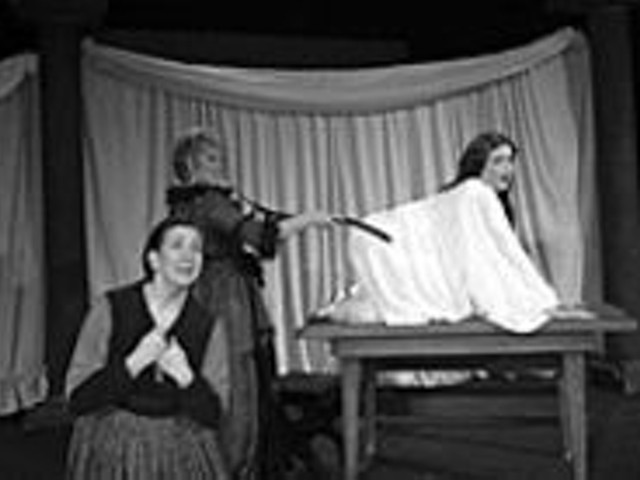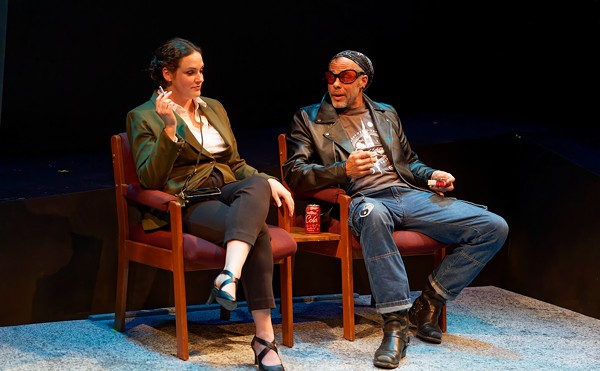For 15 years, after its debut in Eastern Europe in 1907, this parable about purity was a critical and popular success. A Russian silent-film version was produced in 1912. The trouble started in 1923, when the play finally opened in New York City. All went smoothly when it was staged in a Yiddish theater on Second Avenue. Nor were there any complaints when it was performed in English in Greenwich Village. But when God of Vengeance moved uptown to Broadway, the police promptly shuttered the production, citing an obscure anti-immorality statute that had only been enforced once before in the city's history. The producer and cast of 12 were promptly tried and found guilty of having corrupted the morals of New York theatergoers.
That scandalous verdict made the front page of the New York Times. Yet, the newspaper that prides itself on presenting "all the news that's fit to print" deemed the immoral sin that this "filthy, indecent and disgusting" play committed it unfit to reveal to its readers. So what was it? The plot concerns Yekel, an austere father who pretends to lead an exemplary public life while secretly operating a brothel in his basement. Yekel is punished for his hypocrisy when his chaste young daughter, Rifkele, is seduced by one of the prostitutes. During that seduction, the dialogue gets pretty racy. "What a jolly time we'll have," the daughter enthuses. Her would-be lover replies, "I'll wash your eyes in the rainwater." Actually, in this current staged reading, she goes a little further than eye-washing, but we're left in the dark as to what physical contact actually occurred in 1923.
The City Players and the New Jewish Theatre are to be commended for jointly presenting this now-forgotten classic, in tandem with The People vs. The God of Vengeance (the New York judiciary couldn't even get the play's title right), a recent drama drawn from the 1923 obscenity-trial transcript, which also includes a "best parts" abridgment of the original play. Both plays receive staged readings. The cleanliness of the staged-reading format is a refreshing reminder that drama is still a branch of literature. Although sets and costumes can magnificently enhance a text (as in the Rep's recent revival of The Royal Family), in its purest form theater is still essentially a listening experience. Here, the listening in both plays is always thought-provoking.
Each play is complete in itself. But the delicate thread that connects the two productions is spun through Colleen Marler's lyric portrayal of the guileless young Rifkele. Marler is the only actor who reads the same role in both plays. Her performance, especially in God of Vengeance, where Rifkele is allowed her complete arc, is so pure (there's that word again) that the mind boggles to think anyone could find this moralistic play obscene. Matt Kahler also appears in both plays -- or so the playbill asserts. I still don't believe that the wildly disparate portrayals of the brutish Jewish pimp and the simplistic Irish vice-squad officer were delivered by the same actor, so different were they.
Another asterisk: Back in 1923, one of the 12 God of Vengeance actors to be convicted of immorality was a young St. Louisan named Morris Carnovsky. Despite his rather ignoble Broadway debut, Carnovsky (who inexplicably has yet to be added to the St. Louis Walk of Fame) eventually developed into one of America's most distinguished classical actors. His signature roles were Lear and Shylock, two other austere fathers who also had problems with their daughters.





